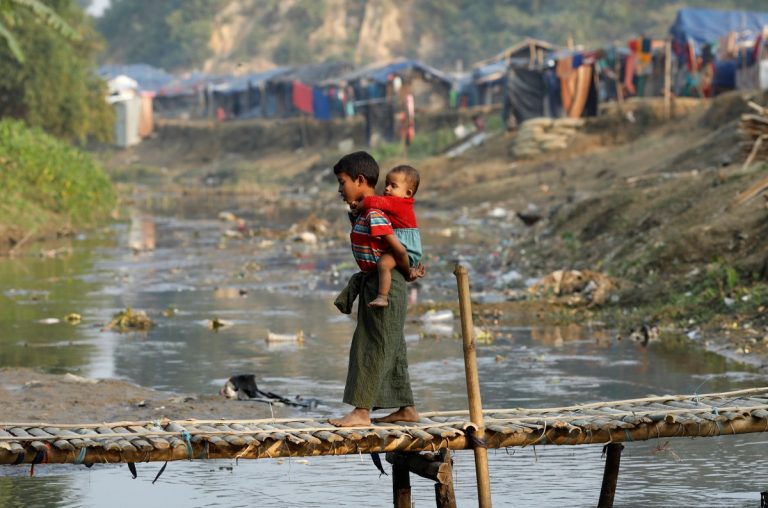
‘Rohingya’ was the most important name of 2017 according to a group of leading academics.
The American Name Society (ANS) – an organisation which promotes onomastics (the study of names and naming practices) in the United States and abroad – decided to choose the name of the persecuted Muslim minority from Burma (Myanmar) earlier this month at its annual meeting.
More than 650,000 Rohingya have fled from Rakhine State into Bangladesh since violence broke out on Aug 25, part of what many in the international community have deemed ethnic cleansing and worse.
According to a statement from the ANS, the Tatmadaw army of Burma has “perpetrated massacres that have the earmarks of genocide. Myanmar’s government has tried to prevent people, including Pope Francis, from using the name Rohingya.”
It noted that the United Nations’ High Commissioner for Human Rights Zeid Ra’ad Al Hussein has said: “to strip their name from them is dehumanising to the point where you begin to believe that anything is possible.”
Headed up by Dr Iman Nick from the Germanic Society for Forensic Linguistics and Dr Dorothy Dodge Robbins from Louisiana Tech University, the ANS has chosen a Name of the Year through a vote of its members since 2004.

People participate in a “MeToo” protest march for survivors of sexual assault and their supporters in Hollywood, Los Angeles, California, U.S. on Nov 12, 2017. Source: Reuters/Lucy Nicholson
In 2017, it chose Maria as Personal Name of the Year in honour of Hurricane Maria which devastated the US territory of Puerto Rico in September and October last year. Miscellaneous Name of the Year was given to #MeToo – the women’s movement aimed at sharing experiences of sexual harassment.
The college town Charlottesville was chosen as Place Name of the Year for becoming “a symbol of racism and resistance” in 2017 after a white supremacist rally there in August, leading to the death of a counter-protester Heath Heyer.
Nambia, meanwhile, was Fictional Name of the Year. US President Donald Trump “lavished praise” on the healthcare system of Nambia during a speech at the UN in September, according to the ANS.

Source: Reuters/Carlos Barria
Of course, there is no such country as Nambia (although Namibia and The Gambia are real countries).
The ANS was founded in 1951 and is a “non-profit organisation that seeks to find out what really is in a name, and to investigate cultural insights, settlement history, and linguistic characteristics revealed in names.”
Its members also include academics from the University of Calabria in Italy, Australia’s Macquarie University and the University of Reading in the UK.
Liked this? Then you’ll love…
Human rights educators to visit Stanford, Harvard amid Rohingya crisis
Cornell University becomes Noah’s Ark for Puerto Rican students







